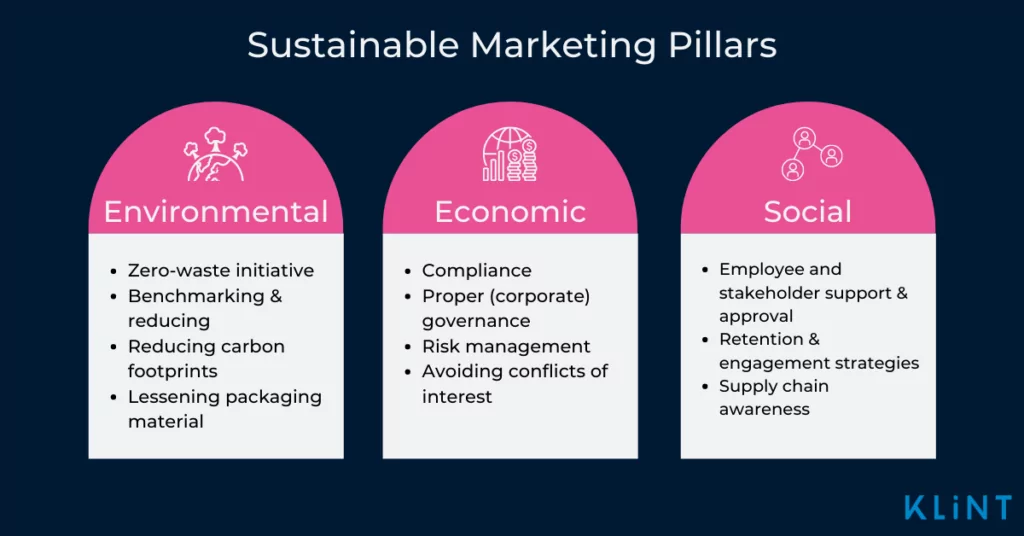Purpose-Driven Marketing: Aligning Brand Values with Consumer Expectations – Purpose-Driven Marketing Aligning Brand Values with Consumer Expectations sets the stage for a dynamic exploration of how brands can genuinely resonate with their audience by aligning their core values with consumer expectations. In today’s marketplace, consumers are not just looking for products; they are seeking brands that stand for something and contribute positively to society. This approach not only enhances customer loyalty but also strengthens brand identity, making purpose-driven marketing a vital strategy for businesses aiming to thrive in a competitive landscape.
As we dive deeper, we will unpack the significance of this marketing approach, the ways in which brands can successfully communicate their values, and the positive impact this alignment can have on consumer trust and engagement. Through real-world examples and insights, we will illustrate how purpose and profit can go hand in hand, creating a win-win scenario for both brands and their customers.
In today’s fast-paced world, the significance of effective communication cannot be overstated. From business meetings to casual conversations, the way we convey our thoughts and ideas plays a crucial role in determining the success of our interactions. Now, let’s explore the various aspects of communication, its importance, and how we can improve our skills to enhance our interpersonal relationships. Understanding CommunicationAt its core, communication is the process of exchanging information, ideas, thoughts, and feelings between individuals or groups.
It encompasses verbal and non-verbal methods, including spoken words, written text, body language, gestures, and even facial expressions. Effective communication goes beyond simply conveying a message; it involves ensuring that the message is understood as intended by the recipient. The Importance of Effective Communication
1. Building Relationships
Strong communication fosters trust and understanding in personal and professional relationships. It allows individuals to connect on a deeper level, share ideas, and resolve conflicts amicably.
2. Facilitating Collaboration
In team settings, effective communication is vital for collaboration. Clear instructions and feedback ensure that everyone is on the same page, leading to increased productivity and innovation.
3. Enhancing Clarity
Miscommunication can lead to confusion and mistakes. By articulating thoughts clearly, individuals can minimize misunderstandings and enhance the overall clarity of their conversations.
4. Boosting Confidence
Good communicators tend to exude confidence. When you convey your thoughts effectively, it not only enhances your credibility but also helps others to perceive you as knowledgeable and reliable.
5. Encouraging Engagement
Engaging communication invites participation. Whether in a classroom, workplace, or social gathering, when people feel heard and understood, they are more likely to contribute their ideas and opinions. Barriers to Effective CommunicationDespite the importance of communication, several barriers can hinder its effectiveness. Understanding these barriers is the first step in overcoming them:
1. Language Differences
Variations in language and dialect can lead to misunderstandings. It’s essential to use language that is accessible to your audience.
2. Cultural Differences
Cultural backgrounds influence communication styles. What is acceptable in one culture may be perceived differently in another. Being culturally aware can enhance communication.
3. Emotional Barriers
Personal emotions, such as anger or frustration, can cloud judgment and negatively impact communication. It’s crucial to approach conversations with a clear mind.
4. Physical Barriers
Environmental factors like noise or distance can impede communication. Finding a conducive setting for discussions can help mitigate these issues.
5. Perceptual Barriers
Personal biases and perceptions can distort the message. Active listening and open-mindedness are vital in counteracting these biases. Tips for Improving Communication SkillsImproving communication skills is an ongoing process that requires practice and self-awareness. Here are some tips to enhance your abilities:
1. Practice Active Listening
Listening is as important as speaking. Engage with the speaker by nodding, maintaining eye contact, and providing feedback. Avoid interrupting and give them your full attention.
2. Be Clear and Concise

When expressing your thoughts, be direct and to the point. Avoid using jargon or overly complex language that may confuse the listener.
3. Non-Verbal Communication
Pay attention to your body language, facial expressions, and tone of voice. Non-verbal cues can significantly influence how your message is received.
4. Ask Questions
Clarify doubts by asking questions. This not only shows your interest but also ensures that you understand the message correctly.
5. Be Empathetic
Try to understand the perspective of the other person. Empathy can bridge gaps and create a more supportive communication environment.
6. Seek Feedback
After a conversation or presentation, ask for feedback on your communication style. Constructive criticism can help you identify areas for improvement. Applications of Communication SkillsEffective communication skills are applicable in various aspects of life. Here are some key areas where these skills can be particularly beneficial:
1. Professional Settings
In the workplace, strong communication skills can lead to career advancement. Whether in interviews, meetings, or collaborative projects, the ability to convey ideas effectively can set you apart.
2. Educational Environments
In academic settings, students who communicate well tend to perform better. Engaging with peers and instructors can enhance learning experiences and foster collaboration.
3. Social Interactions
In everyday life, good communication skills can help you build stronger friendships, resolve conflicts, and navigate social situations with ease.
4. Public Speaking
Public speaking is a vital skill that can be developed through practice. Whether addressing a large audience or participating in a small group discussion, effective communication can boost your confidence and impact.
5. Negotiations
In negotiations, the ability to articulate your needs and comprehend the other party’s perspective is crucial. Effective negotiators use communication to reach mutually beneficial agreements. ConclusionIn conclusion, effective communication is an essential skill that can enhance relationships, foster collaboration, and improve overall understanding. By recognizing the barriers to communication and actively working to improve our skills, we can become better communicators.
Whether in our personal or professional lives, the ability to convey our thoughts and ideas clearly is a valuable asset. It not only empowers us to express ourselves but also allows us to connect with others on a deeper level. Remember, communication is a two-way street, and honing this skill can lead to a more fulfilling and enriched life.




